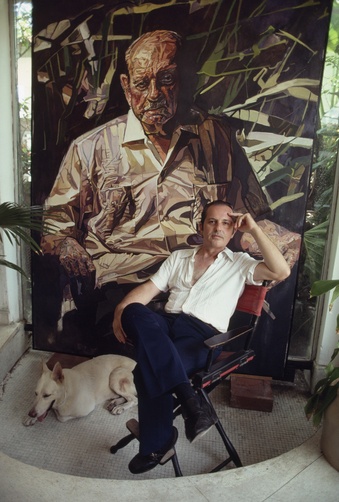As some of you may know there’s been a series of videos and discussions going around, almost meme-like, of a woman walking around New York and the catcalls she received as a result. It has sparked parody videos, conservative backlash, imitators and apologists.
First, here is what the apologists sound like. “Ah, they didn’t mean anything by it. Men are just being men. She should take it as a compliment. She’s pretty, right?”
Then there are those would think that somehow it’s the woman’s fault, as if she’s asking for it. “What does she want us to do dressed like she is, looking the way she does? We’re only human.” It’s as if women should cover themselves in some sort of head to toe garment with eye-slits for navigation.
The most galling to me are those that offer what seems like an attempt to understand by saying, “Hey, I’m a guy, if a woman catcalls to me, I take it as a compliment. I smile and say thank you, ’cause that makes my day.” It’s a false equivalency, folks. Don’t be fooled. Assholes use that technique for a variety of things, most of them racial or gender based, but it’s just flat out incorrect.
A woman catcalling a man, is not the same thing as a man catcalling a woman.
First, let’s construct a proper equivalency. Generally women pride themselves on their appearance, right? It’s a general tendency, not that it is universal, but rightly or wrongly, a woman’s appearance is an important part of her self worth.
What would the equivalent self worth trait be for a man? Money? Success? Let’s go with that. Men are judged less on looks more on career achievement – money. So women – appearence. Men – success.
So, we’ve got a woman walking down the street, dressed nicely. She’s got a knee-length (just below) pencil skirt, a nice top – bare shoulders because it’s hot out and she is walking. She has some low heels because she’s good at walking in them. The couple of blocks to her office isn’t that far. She knows she looks good, and she likes feeling desirable. “Hey there sweetheart. You got a nice pair of legs.” says a construction worker. From the other side of the street she hears shoutouts like “beautiful,” “sexy.” If she doesn’t smile, she will receive an aggressive comment, “Somebody’s acknowledging you for being beautiful. You should say thank you more.”
Now let’s have our man. He’s a successful businessman. He is wearing a business suit. He has his jacket draped over his arm with a smart phone. He has a Rolex watch, expensive Italian shoes, and a $300 belt. He knows he looks good. He knows his adornments show that he is successful, that he is wealthy. If you got it, flaunt it, he thinks to himself.
Suddenly, from an alleyway a delivery person calls out to him. “Nice watch ya got there.” Another, “Dude, those sure are some nice shoes. Bet they were really expensive. Where’d you get ’em,” as he takes a step closer. “That the iPhone 6? Those are niiiiice. My brother got mugged for his. You should keep it safe.”
You see? They’re just complimenting him and expressing concern for his person. They are letting him know that they appreciate his hard work and wealth. If he didn’t want them to comment, he should have toned it down a bit, no? They are responding to what he is communicating – that he is successful, that he is wealthy.
But our businessman is anything but smiling when he arrives at his office. He breathes a sigh of relief as he passes through the lobby. It’s a small thing, I suppose, being suddenly aware of how vulnerable one is. He shakes it off and goes about his day.
As he leaves the office in the evening, he tucks his phone is his pocket, puts on his jacket and tells himself it’s just because it’s a bit chilly.
